Today’s photo is a shot taken from a new real estate video touting the natural surroundings of Dewees Island, a barrier island at the end of 60 miles of protected parkland. The island near Isle of Palms is only reachable by ferry. Only 6 percent of the island, which has no cars, is open to development. You can learn more in this 5-minute film by the guys at Yonder Blue Films from outside of Atlanta. The film debuted last week for island residents, as highlighted here. Thanks to Nate Rowland for providing this and other images.
IN THIS EDITION | MARCH 30, 2015 | Number 7.22
FOCUS: Three-day conference offers chance for collaboration
BRACK: Keep your mitts off of our coast
IN THE SPOTLIGHT: SCIWAY
SENIORS: The ABLE Act — a new, special tool
PALMETTO POEM: Ten more reasons to come back as a pelican
GOOD NEWS: Google CS program from S.C. marks milestone
FEEDBACK: Send your letters
CALENDAR: April+ — Silhouettes, Easter, hats, more
REVIEW: The Quiet Streets of Winslow
PHOTOS: Dewees sunset
MYSTERY PHOTO: Municipal garden
S.C. ENCYCLOPEDIA: Mules
TODAY’S FOCUS
Three-day conference offers chance for collaboration
By Todd Chas, special to Charleston Currents
MARCH 30, 2015 — Two local grassroots organizations, Building from the Block Up and CharlestonGOOD, are teaming up to host a free three-day series of workshops based on the understanding that collaboration is the key to increasing our positive impact on our community.
As event organizers point out, “There is no
shortage of wonderful people, organizations and businesses working to make the Lowcountry a better place to live. As volunteers, consultants and entrepreneurs ourselves, we are inspired daily by the ‘good’ that surrounds us. But let’s face it, we all know there are obstacles to our best efforts and intentions: lack of knowledge, lack of resources, lack of ideas, lack of time, lack of connections, and lack of coordination in our efforts.”
The #GOODSHARING Conference aims to address these issues by bringing people together to collaborate for good. Over the course of the three-day free event from April 2 to 4, we will have the opportunity to assess where we are, identify shared issues, brainstorm solutions, develop resource lists, expand our community networks, and embark on revitalized or nascent community projects and programs.
Our goal is to not only provide a meaningful experience but also to serve as a catalyst for a coordinated and collaborative community building movement here in Charleston.
Working together will help all of us be more effective. We hope you will join us for any of the sessions that you can.
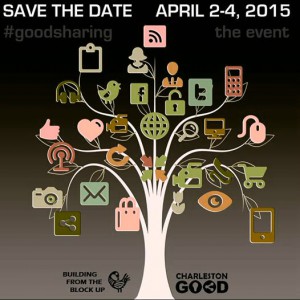 Conference schedule
Conference schedule
(all meetings are in the auditorium of the Charleston County Public Library, 68 Calhoun Street, Charleston)
Breaking out of Silos for Good: Thursday, April 2, 5 p.m. to 8 p.m.
Let’s re-frame our understanding of single-issue service delivery into a collaborative community that serves together. ‘There are no single-issue lives, so our service should not be a focused on a single issue. Together, we can “weave individual initiatives and collective endeavors into patterns of unified action.” We can also raise our collective capacity for coordinated project management through the development of shared calendars, volunteer pools, and other technical resources.
Vision for the Future: Youth-Led Community Building: Friday, April 3, 1 p.m. to 4 p.m.
Today we feature the work and perspectives of youth empowerment specialists and our young community builders who bring refreshing idealism to the table. Local youth leaders will guide workshops on enhancing youth power in our work. The fruit of the day will be the formation of a Youth Builders Network created to support the work of emerging leaders from across the Lowcountry.
Creative Collaborations Jam: Saturday, April 4, noon to 4 p.m.
The final day of #GOODSHARING will focus on developing our ability to create novel ‘projects’ through consolidating the assets and connections made during the conference. We will spend the afternoon mapping the visions, passions, and resources we can all contribute. We will also create and launch new and sustainable projects to be executed in the next 2 months.
ABOUT BUILDING FROM THE BLOCK UP: Building from the Block Up is an organization and resource network created to strengthen cooperative youth led social enterprises by nurturing their ideals into actions and awakening their dreams into reality: Block by Block. We envision a renewed and regenerative force of youth-inspired projects and enterprises that can begin building the just and sustainable future we all need.
ABOUT CHARLESTONGOOD: CharlestonGOOD is a grassroots media outlet and incubator designed to celebrate, support and inspire the positive people, projects and possibilities that make life in the Lowcountry so rewarding. Through our interactive community media project, targeted grassroots support services, and collaborative community partnership development, we seek to more effectively educate, empower and engage people toward the common good.
Todd Chas is the founder of CharlestonGOOD, a grassroots incubator and media center that supports positive people, projects and possibilities in the Lowcountry. He also is a founding partner in Grow Purpose Network, a mission-driven consulting firm that addresses social and environmental issues in empowering and effective ways, primarily through the facilitation of innovative collaborative projects.
COMMENTARY
Keep your mitts off of our coast
By Andy Brack, editor and publisher
MARCH 30, 2015 — State Republicans, often obsessed with spanking Democrats for backing a “nanny state” to take care of the less fortunate, are blind to their own frightening vision, an Anita Bryant free-market dream where just about everything goes, except what you do in the bedroom.
![]() This worldview would find guns everywhere. Developers and big companies would overrule the public’s interest in preserving South Carolina’s special places. Public money would pay for private schools. People would be at their own peril in finding good health care, sending tens of thousands routinely to emergency rooms for primary care. And oil wells — well, they would be just off the horizon of our coast, free to spew gunk whenever humans make errors.
This worldview would find guns everywhere. Developers and big companies would overrule the public’s interest in preserving South Carolina’s special places. Public money would pay for private schools. People would be at their own peril in finding good health care, sending tens of thousands routinely to emergency rooms for primary care. And oil wells — well, they would be just off the horizon of our coast, free to spew gunk whenever humans make errors.
Here’s free advice to South Carolina Republicans, blinded by business, deaf to the coastal quality of life: You’d better listen to what coastal communities are saying about exploring for oil and gas off the state’s $4 billion tourism shore. If you don’t, you just might pay at the Statehouse by being run out of office.
For the past few weeks, coastal communities have been voting, one after another, to oppose oil and gas exploration, as well as seismic testing in offshore waters: From Hilton Head Island to Beaufort, James Island and Folly Beach … from Isle of Palms and Port Royal to Charleston.
Their reasoning is pretty darn simple: They don’t want a Deepwater Horizon oil tragedy to happen here. They don’t want to risk marine life and the fragile coastal ecosystem. They don’t want to take a chance of spoiling the tourism boom that is helping residents recover from the recent recession.
If there were enough oil or gas off South Carolina’s coast to really be a substantial source, a different risk discussion could be had. But there’s just not, according to the S.C. Coastal Conservation League’s Hamilton Davis in a recent issue of Statehouse Report:
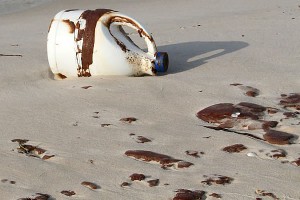
This gunk-covered bleach bottle washed ashore after the Deepwater Horizon tragedy. Photo by Andy Brack.
“Current estimates for reserves off the South Carolina coast equate to a 6-day supply of oil and gas at current U.S. consumption rates. If all economically recoverable fossil fuel reserves were extracted for the entire East Coast, you could only meet current oil demand for 132 days and current gas demand for 283 days.”
Is it worth the risk to have tar balls floating into estuaries and killing shrimp and fish? Is it worth scaring away tourists when oil-laced trash washes up on beaches? Is it worth causing the local economy to nosedive just to get six days of fossil fuel? Two words: Hell no.
Hold your state legislators accountable, particularly those who don’t live along the coast, and make sure they don’t ruin South Carolina’s coastal treasures. Tell them you’d rather they work on ways to spur people to invest in renewable resources, such as wind and solar energy.
* * *
In the recent issue of Statehouse Report, we outlined a different kind of risk — a risk of relying time and again on tax cuts to drive public policy. Having a tax worldview that precludes tax increases as politically unpopular and relies on tax cuts makes it tough for state government to boost revenues to pay for increased costs of everyday things, much less to improve programs to make things better.
National analysts Katherine Barrett and Rich Greene say the tax cut question is a “tricky game” for states. In a new article for the Council of State Governments, they challenge the notion that tax cuts always lead to improved state economies. Just look at the 20 states with the highest state-local tax burdens, they say. Six are in the Tax Foundation’s top 10 New Economy Index, which highlights states likely to have continuing economic health. On the other hand, Kansas, which had some of its largest tax cuts in history in 2012, continues to reel from the impact of lost revenue. Predicted “growth” just did not trickle in.
Barrett and Greene say businesses obviously will locate in states that offer low taxes — just as long as services and education are good. But they won’t move to or remain in a state where tax cuts impede services that businesses need, such as good roads to truck goods to market. And they won’t go where inconsistent tax policy yields fluctuating, unpredictable bills.
Bottom line: When tax cuts slash into the marrow of education, good roads and services, legislators risk making South Carolina less competitive, which means fewer jobs, less growth and a tougher time for everybody. Our leaders need to be a little more flexible on tax policy
Andy Brack is editor and publisher of Charleston Currents. Send feedback to: editor@charlestoncurrents.com.
IN THE SPOTLIGHT
SCIWAY
The public spiritedness of our underwriters allows us to bring Charleston Currents to you at no cost. Today we shine our spotlight on SCIWAY. Pronounced “sky-way,” SCIWAY is South Carolina’s Information Superhighway — the largest and most comprehensive directory of South Carolina information on the Internet. It includes thousands of links to other South Carolina Web sites, including Charleston Currents, as well as an amazing collection of maps, charts, articles, photos and other resources.
- To learn more about this extraordinary information hub that 7 million people visit a year, go to: http://www.SCIWAY.com.
SENIORS
The ABEL Act — a new, special tool
By Catherine LaFond, contributing editor
MARCH 30, 2015 — At the end of 2014, President Obama signed the Achieving a Better Life Experience Act (hereinafter “ABLE Act” or “Act”). The law creates a new tool for a person with a disability to save money without losing needs-based public benefits such as SSI or Medicaid. An ABLE account provides the special needs community with another option, in addition to special needs trusts, to consider when creating a plan for persons with a disability.
 Who is an eligible beneficiary of an ABLE account? An ABLE account can be created on behalf of a special needs person of any age, as long as that person can establish that they were legally disabled prior to the age of 26.
Who is an eligible beneficiary of an ABLE account? An ABLE account can be created on behalf of a special needs person of any age, as long as that person can establish that they were legally disabled prior to the age of 26.
Who is the remainder beneficiary of an ABLE account? The ABLE account is a “Medicaid Payback” account which means that, upon the death of the beneficiary, any remaining balance in this account must first be used to reimburse Medicaid for monies paid on behalf of the special needs person subsequent to the establishment of the ABLE account. When a beneficiary of an ABLE account is receiving Medicaid, it is important to consider how much should be placed in the ABLE account to limit what may be recovered by Medicaid at the end of the beneficiary’s life.
Who can create an ABLE account? An account may be established by anyone (the special needs person, a relative, or friend) for the benefit of an eligible beneficiary.
What are the ABLE Act’s financial limitations?
- Maximum Annual Contributions: Donors are limited to contributing up to the annual gift tax exclusion amount which is currently $14,000.
- Exemption Limitation: SSI only exempts the first $100,000 in the account.
- Maximum Account Balance: ABLE accounts may only accumulate aggregate contributions up to the state’s limit on qualified tuition programs (i.e. 529 accounts), which ranges between $300,000 and $400,000. Therefore, if an individual receives SSI, his or her ABLE account may not exceed $100,000 and s/he may have other assets up to only $2,000. Otherwise, the individual will become ineligible to continue receiving SSI, but can remain eligible for Medicaid.
What are the tax benefits of an ABLE account?
- Taxation of Qualified Distributions: Qualified distributions from the account are not counted as taxable to either the donor or the beneficiary. Qualified distributions include those paid on behalf of the beneficiary that are related to education, housing, transportation, employment training and support, assistive technology and personal support services, health and wellness, financial management and administrative services, legal fees, expenses for oversight and monitoring, post-mortem expenses, and/or any other expenses approved by the Secretary of Treasury.
- Taxation of Earnings: Contributions are made post income tax but the earnings on the ABLE account are not taxable to the contributor or to the beneficiary.
- Rollover of Account: Assets in an ABLE account may be rolled over to another ABLE account for the benefit of another qualified beneficiary who is also a sibling or step-sibling of the beneficiary.
While the ABLE Act provides an attractive option for those with special needs, there are some situations where it is an inadequate or inappropriate alternative to a special needs trust, such as where the qualified beneficiary is about to receive litigation or settlement proceeds or a large inheritance. Further, like every tool, the ABLE account has its benefits and limitations. Knowing when an ABLE account is appropriate and knowing when another option might be more suitable is a decision that should only be made after consulting with professionals proficient in special needs planning.
Catherine LaFond, J.D., LL.M., of catherine e. lafond, p.a., is an elder law attorney accredited with the VA to assist veterans and their surviving spouses with the presentment of claims for Improved Pension and can be reached at 843.762.3554. She is VA Accredited Attorney #19668.
PALMETTO POEM
By Laurel Blossom, special to Charleston Currents
Kafka said a book must be an axe for the frozen sea within us.
Even if you don’t believe in it, wouldn’t you like to come back as something useful?
Something in this life you loved? Like poetry?
Because pelicans fly in lines.
Because they skim the waves like daggers, plunge into the ocean’s chest.
Scoop its flopping, meaty heart out.
Because they can eat their dinner in one gulp without getting arrested.
Because they sit on the dock all day, wasting time like Otis Redding.
Because they can’t do what ten people tell them to do either.
Because I want to live at the beach.
Because I love to watch them come in for a landing.
They say that pelicans go blind in the end and die because they can’t feed themselves.
Because it’s not true. I don’t care.
Because I’ve already made that decision:
Like Edna St. Vincent Millay and Montaigne, I’d rather be able to hear than see.
Except you, my love. You are beautiful and dangerous.
Like the grey wolf with its yellow eyes.
Or oleander, first flower of Hiroshima, poison.
Snake in the grass, you serpent, adder – I am dying, Egypt, dying –
Flights of pelicans sing me to my rest.
Laurel Blossom is the newly-appointed, first-ever Poet Laureate of Edgefield. Her new book, a book-length narrative prose poem called Longevity, will be published by Four Way Books in October.
GOOD NEWS
Google CS program from S.C. marks milestone
A team of teaching fellows in South Carolina’s Lowcountry is celebrating a milestone in computer science education as the number of students using Google’s CS First curriculum surpassed the 25,000 mark.
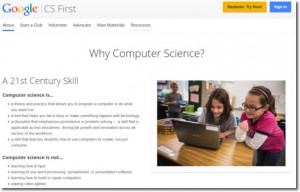 Since the curriculum’s inception in 2013, schools across the country have created more than 1,600 unique clubs led by more than 1,700 community volunteers and teachers.
Since the curriculum’s inception in 2013, schools across the country have created more than 1,600 unique clubs led by more than 1,700 community volunteers and teachers.
“Nationwide over the next few years, experts predict that there will be a million more computer science jobs than graduates to fill them,” said JamieSue Goodman, a Manning, S.C. native who leads the CS First Project. “So, we created CS First to inspire students who might be interested in coding and programming as a career.”
Google’s teaching fellows and program managers developed a curriculum that uses video games, music, dancing and fashion to introduce students to basics of coding and interfacing with a computer on a programming level, according to a press release. It quickly took on a life of its own, officials said.
“We launched this as a two-year pilot program and it has become a self-sustaining and scalable educational tool that has a lot of shelf-life,” said Kate Berrio, CS First Program Manager. “We’re excited about the 25,000 number, but we work with more and more great school leaders each day. As word of their success is shared around the world, we are seeing exponential growth.”
Also in good news:
Photo contest: Residents from Berkeley, Charleston, Colleton and Dorchester counties are invited to enter a professionally-judged photo competition with $3,500 in prizes. The contest, by Kolter Homes at The Ponds in conjunction with the Lowcountry Photography Club, runs from today (March 30) to June 14. Lifestyle and nature photographs are sought. To learn guidelines and submission information, click here.
Award winner: Congratulations to local businessman Charles Fox of Fox Music House for being named this year’s winner of the Summey Barkley Rucker Medallion for his contributions to the community and arts education. The award was created in 2011 by South of Broadway Theatre Company (SOBTC) in recognition of the important work of mentoring young artists. The medallion is named for North Charleston Mayor Keith Summey, Charleston Regional Alliance for the Arts Founding Chair Nella G. Barkley and two-time Grammy Award Winning entertainer and Grand Ole Opry Member Darius Rucker. The award will be presented April 29 at a gala. More info.
New Citadel official: A hearty welcome to Connie Ledoux Book, who has been named new provost and dean of The Citadel. It’s the number two leadership position at the college. Currently a leader at Elon University, she will begin leading academics at the military college in July.
“We are pleased to welcome Dr. Connie Book as our new provost and dean of The Citadel,” said Citadel President Lt. Gen. John W. Rosa. “She not only has the leadership and academic experience we sought, but she clearly embraces our mission. She is the perfect fit during this exciting time at The Citadel.”
Eat Local Month: April is Lowcountry Local First’s fourth annual Eat Local Month to highlight the positive community benefits of supporting Lowcountry farms and food businesses. Throughout the month, the organization will provide educational opportunities and events to people to connect with farmers, restaurants, businesses and more. Learn more online.
Purple pots: Le Creuset, which has its North American marketing office and culinary center in Charleston on the Ashley River, has a new color of its signature enameled cast iron cookware: Amethyst, which the company describes as a “sophisticated, rich purple.” The new pots will be sold at company stores and online starting in mid-April.
FEEDBACK
Rant. Rave. Tell us what you really think.
If you have an opinion on something we’ve offered or on a subject related to the Lowcountry, please send your letters of 150 words or less to: editor@charlestoncurrents.com.
- Our feedback policy.
CALENDAR
April+: Silhouettes, Easter, hats, more
Russian relations: 6 p.m., April 1, Citadel Alumni Center, Charleston. Former U.S. Ambassador to Russia James F. Collins will speak on “U.S. relations with Russia and Eurasia” at an event held by the World Affairs Council of Charleston. More info.
 Clay Rice silhouettes: 3 p.m. to 6 p.m., April 2, Blue Bicycle Books, 420 King Street, Charleston. Artist Clay Rice will sign books and cut personalized silhouettes at this event. If you’ve never seen Rice’s freehand artistry, it’s something that you can’t miss. Reserve your slot to get a personal silhouette by phoning 843.722.2666.
Clay Rice silhouettes: 3 p.m. to 6 p.m., April 2, Blue Bicycle Books, 420 King Street, Charleston. Artist Clay Rice will sign books and cut personalized silhouettes at this event. If you’ve never seen Rice’s freehand artistry, it’s something that you can’t miss. Reserve your slot to get a personal silhouette by phoning 843.722.2666.
Free Easter weekend events: Freshfields Village near the entrances of Kiawah and Seabrook islands will feature Rubberband from 6 p.m. to 9 p.m. April 3; an Easter festival from 11 a.m. to 3 p.m. April 4 with free children’s activities (including a mechanical bull); and a non-denominational Easter service at 9:30 a.m. April 5 on the Village Green.
Hats On at the Farmers Market: 10:30 a.m. to noon, April 4, Marion Square, Charleston. The Hat Ladies will celebrate opening day of the market and wish everyone at “HaTpy Easter.” More.
Easter Sunrise Service: 6:30 a.m., April 5, Magnolia Plantation and Gardens, Charleston. Old St. Andrew’s Parish Church and St. Andrew’s Mission Church will gather for an Easter Sunrise Service at Magnolia Plantation and Gardens on the banks of the Ashley River. Parking and admission are free. More: Follow #easteratmagnolia on Twitter.
Art on Paper: Through April 5, 2015. While the Gibbes Museum of Art is renovating its space through next year, its third annual Art on Paper exhibit will continue — just in a different location. This year, the exhibition of works on paper will come from six local galleries and be featured at The Vendue, Charleston’s art hotel at 26 Venue Range, Charleston. An opening reception is 5 p.m. to 8 p.m., Feb. 6, at the hotel.
CofC spring concert: 7:30 p.m., April 6, Sottille Theatre, 44 George Street, Charleston. The College of Charleston Orchestra will perform its annual spring concert. Yuriy Bekker will conduct the orchestra, featuring renowned cellist Natalia Khouma playing the first movement of Antonin Dvorak’s “New World Symphony” cello concerto. Also on tap is music by student composers. Free to CofC students; $15 for all others.
(NEW) Pet Fest: 10 a.m. to 4 p.m. on April 11 and 12, Mount Pleasant Palmetto Islands County Park. Pets and their owners are invited to this weekend of exhibits, demonstrations, experts, entertainment and more. Click here for info.
Literary libations: 6 p.m. to 9 p.m., April 14, Mellow Mushroom, 309 King Street, Charleston. Close your book for the night and make a toast to literacy with the Charleston Friends of the Library at a special literary libation fund-raiser and silent auction to support local libraries.
Earth Day MUSC: 11 a.m. to 2 p.m., April 15, MUSC Horseshoe, 171 Ashley Ave., Charleston. The 7th annual free education event will feature live music, green food choices and lots of information about composting, rainwater collection, saving energy, reducing waste and becoming more sustainable.
East Coast Paddlesports: April 17-19, James Island County Park. The 25th annual event is one of the nation’s premier showcases of canoeing, kayaking and stand-up paddleboarding. Full event schedule is online.
Fashion Flashback: Through May 10, 2015, 360 Meeting St., Charleston. The Charleston Museum will offer a new fashion exhibition, “Fashion Flashback, 1920s-1960s: Five Decades of Style that Changed America” in its Historic Textiles Gallery. A light-hearted look at 50 years of fashion, viewers will enjoy exploring clothing styles from the swinging 1920s to the hip 1960s. Learn more here.
Natural history exhibit: Through Aug. 10, 2015. “From Land to Sea: 35 Million Years of Whale Evolution” will be featured in The Charleston Museum’s lobby gallery with displays of whale fossils from millions of years ago. There’s limited availability for an overview by Natural History Curator Matthew Gibson on opening night. Learn more.
Bird walks: 8:30 a.m. to noon, every Wednesday and Saturday. This is the time of year that a great variety of migrating birds fly through the Lowcountry so what better time to take part in one of the regular early morning bird walks at Caw Caw Interpretive Center in Ravenel. Pre-registration is suggested. Cost is $5. Walks also are conducted on James Island and Folly Beach. Learn more online.
If you have an event to list on our calendar, please send it to editor@charlestoncurrents.com for consideration. The calendar is updated weekly on Mondays.
REVIEW
The Quiet Streets of Winslow
A novel by Judy Troy
![]() The Quiet Streets of Winslow is a starkly beautiful work of literary fiction masquerading as a murder mystery. The calm, lyric tone of Judy Troy’s prose takes her reader away to the sparse, open spaces of northern Arizona and into the hearts of her characters.
The Quiet Streets of Winslow is a starkly beautiful work of literary fiction masquerading as a murder mystery. The calm, lyric tone of Judy Troy’s prose takes her reader away to the sparse, open spaces of northern Arizona and into the hearts of her characters.
The mystery begins with the discovery of the body of a young woman in a lonely culvert. She has been murdered and her body placed in the desert. The police see it as a crime of passion, and look to her past to discover her killer. The story alternates between three narrators; the teenage boy who discovers the body, his older half-brother who becomes a suspect, and the middle-aged detective assigned to investigate the case. The plot snakes forward with all the twists and dead-ends of a satisfying who-done-it, but it is the characters’ inner lives that are the true focus of the novel. The sudden possibilities of a first love, the pain of an unrequited love, and the emptiness of a lost love blend together for a wonderfully satisfying read.
— Scott Hamiel, Main Library, Charleston, S.C.
MARCH WINNER: Hats off to reference librarian Michael Nelson of Mount Pleasant Regional Library. He won a pair of tickets to Magnolia Plantation and Gardens from Charleston Currents in a monthly drawing for reviewers.
 Find this and similar titles from Charleston County Public Library. This item available as a book. To learn more or place a hold, visit www.ccpl.org or call 843-805-6930.
Find this and similar titles from Charleston County Public Library. This item available as a book. To learn more or place a hold, visit www.ccpl.org or call 843-805-6930.
MYSTERY PHOTO
Municipal garden
CLUE: Note the background to figure out where these flowers might be. Send your guess to editor@charlestoncurrents.com for a chance to win a pair of tickets to Magnolia Plantation and Gardens. Make sure you include your contact info (name and hometown).
Last week’s mystery was tough. No one guessed the name of this London bridge (Blackfriars Railway Bridge), which shows huge abutments from an old bridge in the foreground. But hats off and a pair of tickets to Magnolia Plantation and Gardens to Judy Carberry of Charleston who wrote, “It is an old railway bridge across the Thames in London.” Chris Brooks of Mount Pleasant recognized St. Paul’s Cathedral in the background.
S.C. ENCYCLOPEDIA
Mules
A mule is a hybrid animal that results from breeding a male donkey with a female horse. Although mules have gender (males are called “horse mules” and females “mare mules”), they are sterile and cannot reproduce. For centuries mules have been prized for their intelligence and capacity for work. Farmers typically preferred mules to horses because mules usually lived longer, learned faster, and were better tempered than horses.
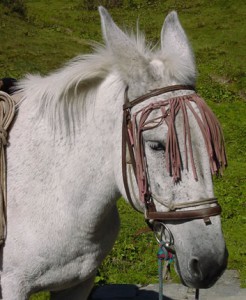 Mules were fixtures of rural life in South Carolina for two hundred years. Cotton and tobacco growers alike used mules, and the hearty animals plowed, harrowed, and hauled crops to market in every county in the state. The timber, naval stores, and phosphate industries employed mules as well. Among rural folk, ownership of mules placed landless farmers in a position to negotiate more favorable tenancy arrangements with landlords. An active market in mules existed throughout the year, and any serviceable mule was worth hard cash. Thus, mules were commonly pledged as collateral against loans and advances from banks and merchants.
Mules were fixtures of rural life in South Carolina for two hundred years. Cotton and tobacco growers alike used mules, and the hearty animals plowed, harrowed, and hauled crops to market in every county in the state. The timber, naval stores, and phosphate industries employed mules as well. Among rural folk, ownership of mules placed landless farmers in a position to negotiate more favorable tenancy arrangements with landlords. An active market in mules existed throughout the year, and any serviceable mule was worth hard cash. Thus, mules were commonly pledged as collateral against loans and advances from banks and merchants.
South Carolina’s mule population peaked in the 1920s at around 210,000. As nearly all were imported from Missouri or Texas, the mule trade drained millions of dollars annually from South Carolina farmers. The state’s commissioner of agriculture prudently encouraged farmers to raise their own mules, but few heeded his advice.
By the 1940s tractors and trucks were replacing mules on South Carolina farms. The pace of change quickened after World War II, and by the early 1950s mules were the exception rather than the rule. Here and there a beloved animal lived out his days in semiretirement tilling a vegetable garden as plowmen relied more and more on diesel power.
– Excerpted from the entry by Becky Walton. To read more about this or 2,000 other entries about South Carolina, check out The South Carolina Encyclopedia by USC Press. (Information used by permission.)
OUR UNDERWRITERS
Charleston Currents is an underwriter-supported weekly online journal of good news about the Charleston area and Lowcountry of South Carolina.
To learn more about how your organization or business can benefit, click here to contact us. Or give us a holler on the phone at: 843.670.3996.
SUBSCRIBE FOR FREE
Subscriptions to Charleston Currents are free.
- Click here to subscribe.
- Unsubscribe. We don’t want to lose you as a reader of Charleston Currents, but if you must depart, please click here.


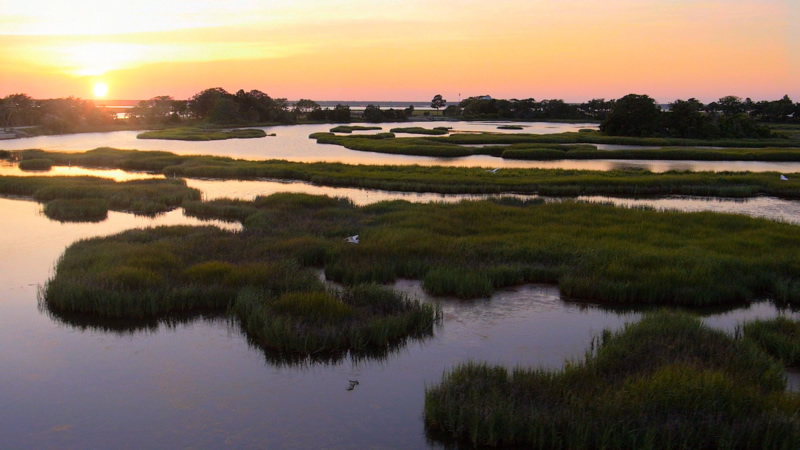




 We Can Do Better, South Carolina!
We Can Do Better, South Carolina!
























